Experts call for cancer service support as young Australian patient numbers soar
Experts warn Australia isn’t prepared for its next epidemic – a sharp rise in young people being diagnosed with cancer, just like Princess Kate. Here’s what you need to know.
SA News
Don't miss out on the headlines from SA News. Followed categories will be added to My News.
Medical experts are sounding the alarm as a predicted epidemic of cancer in under 50s threatens to overwhelm the country’s GPs and blow out hospital wait times.
Opposition spokeswoman for preventive health Penny Pratt told The Advertiser that early onset cancer projections – which are rising in the hundreds each year – were “alarming” given pre-existing pressures on the health system.
“We know our health system is already struggling with current demands and unable to see patients in a timely manner because of chronic overcrowding in our EDs and record ramping under Labor,” Ms Pratt explained.
“With South Australians struggling to access GPs to identify cancer-related illnesses early, sadly people will lose their lives.”
In response, the Malinauskas government promised cancer and preventive health were “key elements” of a $4.4 billion investment in the health system, including a new SA Cancer Plan which is in its final stages.
Meanwhile, leading radiation oncologist, Associate Professor Michael Penniment AM, said public and private sectors needed to work together Australia-wide to meet the demands of the worrying rise in young cancer patients.
“The challenge is to continue to improve access of patients to facilities, it’s something the public and private sectors should work on together regardless of (patients’) socio economic status,” Professor Penniment, from Icon Cancer Centre in Windsor Gardens, told The Advertiser.
“Governments need to work with all providers to look at which spots are underserviced, for example in Alice Springs where rates of early cancer are high.
“We probably do have a humanitarian responsibility to help our near neighbours, too, in places like New Guinea and the Pacific Islands where facilities are almost non existent.”
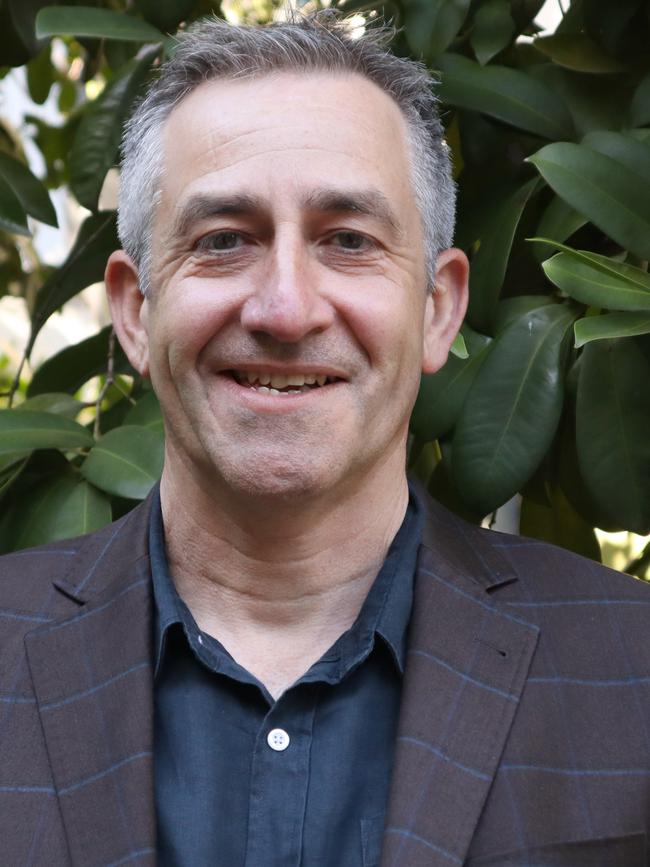
The startling concerns of our nation’s top doctors and experts comes as The Advertiser launches its Too Young for Cancer campaign, raising awareness of the rise of young people being diagnosed with cancer in Australia.
Each day, a young Australian facing cancer will share their unique and heartbreaking stories … from a 27-year-old mum-of-one in palliative care after doctors said she was “too young for cancer” to today’s story of Rhys and Tayla Couzens, who fell madly in love when they matched on a dating app when she had terminal breast cancer.
It comes just two months after Catherine, Princess of Wales, shared to the world she was receiving preventive chemotherapy at just 42 years old after cancer was discovered following abdominal surgery.
The heartbreaking video thrust the troubling issue of early onset cancer into the spotlight, with a recent study presented in the BMJ Oncology journal estimating by 2030, the number of early onset diagnoses could increase by roughly 30 per cent worldwide.
Alarmingly, it found the number of people who die from their conditions could rise by about 20 per cent.
What’s causing this? Recent research Taussig Cancer Institute in the US suggests our cells are ageing faster than ever due to a rise in stressful sedentary lifestyles and poor food choices. But really, the rise has doctors baffled and in March it was announced that Government-funded researchers at top universities in the US and UK will receive up to $25 million over five years to investigate.
‘Action and awareness’: Experts speak out
Dr Savio Barreto, an associate professor in medicine at Flinders University in South Australia said there is “need for awareness and action” by governments in a “timely manner”.
“Acknowledging data on disease forecasts, seeking consultation from all relevant stakeholders to guide planning, and acting in a timely manner are going to be key principles moving forward,” he told The Advertiser.
Pointing to his findings of an increased risk of gastrointestinal adenocarcinomas – cancers that develop from the gland cells in the innermost lining of the stomach – in young people, he said lowering the screening age as proposed by the National Health and Medical Research Council would be a start.
“While this will present a significant undertaking for the healthcare system, it holds the promise of early detection of cancers,” he said.
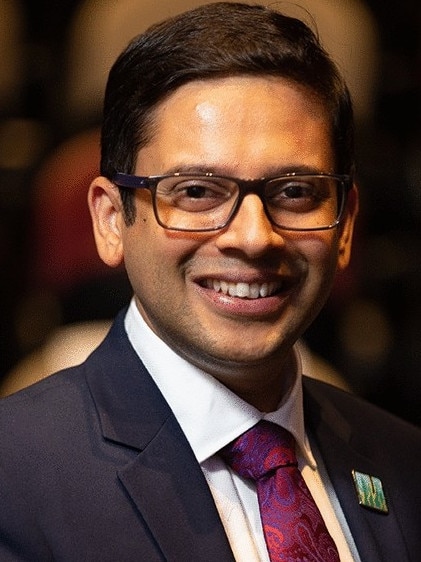
Dr Barreto added that while increases in other types of cancer were “occurring slowly” in South Australia, fast action could “stem or reserve the trend”.
Sadly, this is not the case in other states and territories, with Dr Barreto saying it is “imperative” for recognition and response to rapid increases of early onset cancer in First Nations communities.
“Our data from the Northern Territory revealed higher than most global rates for young-onset pancreatic cancer,” he revealed.
“We must be mindful of the poorer survival experienced by our First Nations people with young-onset cancers.”
Royal Australian College of General Practitioners president Dr Nicole Higgins said there were “many factors” contributing to the rise in early onset cancer diagnoses, stressing the importance of additional GP support.
“In order to help patients and catch cancer as early as possible, we need to do all we can to ensure people are accessing high-quality general practice care without delay,” Dr Higgins said in a statement.
“Years of chronic underinvestment in general practice care has resulted in care becoming less affordable, and with many people still feeling the effects of a cost-of-living crisis, a trip to the GP is put on the backburner or avoided altogether.”
While federal government incentives introduced in the last budget have boosted bulk-billing rates to 2.1 per cent around Australia, Dr Higgins admitted that “the job is only just beginning”.
“We are calling on the government to boost patient Medicare rebates, including for longer consults, to help make Australia healthier, reduce pressure on our hospitals, and make sure patients access the care they need and don’t put off a visit to the GP.
“Early cancer diagnoses often start with a patient knowing something is not quite right and consulting with their GP. So, let’s make sure that cost isn’t a factor holding them back, this must be a priority in the years ahead.”
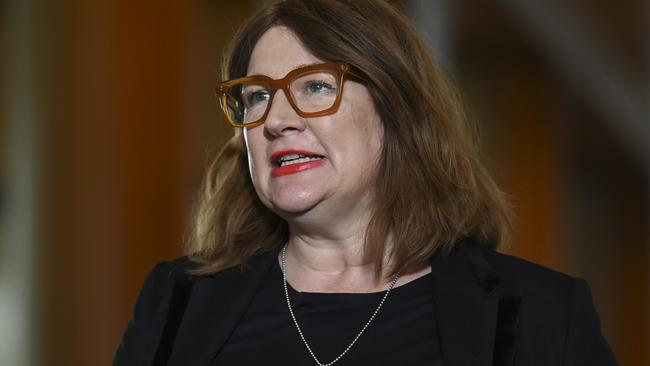
Professor Penniment weighed in that the increase in cancer incidents was likely an indicator of screening and detection advancements globally – predicting numbers will get worse before they get better with early screening increasingly encouraged.
“Better detection – such as CT scanning for lung cancer that is coming in the next 12 months – will put the incidents of early lung cancer in Australia up, but will decrease the death rate over time as well because of people presenting when they’re well and they didn’t even know they had an early lung cancer as opposed to when it’s causing them massive problems,” he explained.
“You feel like you’re bulletproof at an early age, you think ‘that couldn’t happen to me’. It obviously does, but if you get on to it early it’s incredibly curable.”
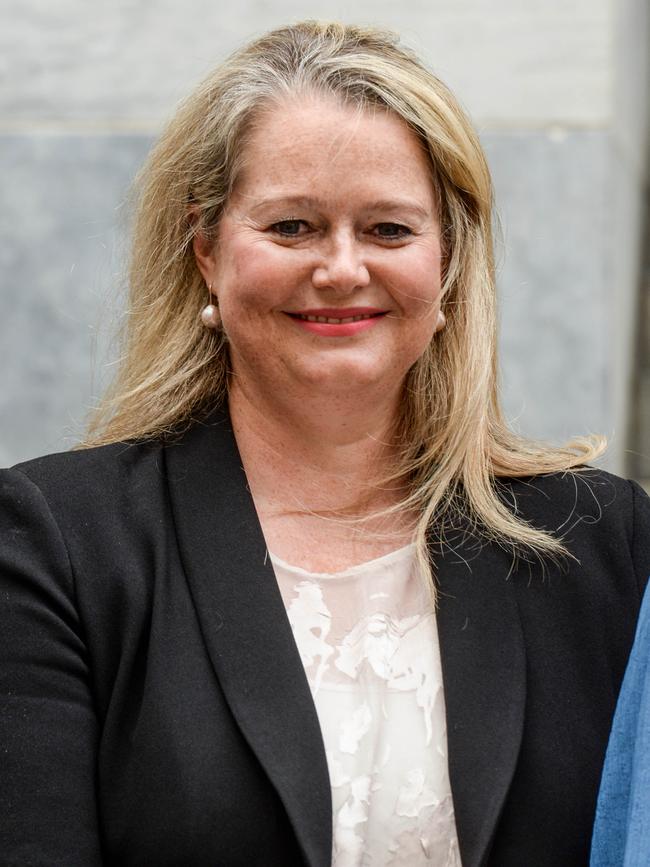
Influx of young patients impacting specialist wait times
Covid has had a profound effect on healthcare systems Australia-wide, delaying non-Covid related medical issues such as cancer screening and prevention.
These delays have inevitably led to a rebound effect, with wait times in public hospitals for some specialities up to six years.
Last year, The Advertiser reported two cases of cancer patients forced to wait up to a year for surgery in the SA public system.
One man, 57-year-old Wayne Talbot, said despite repeatedly being told his bladder cancer case was urgent, he was “lost in the system” and the cancer spread to his prostate and lymphs.
And shadow minister for preventive health Penny Pratt says the immense pressure on the health system will only worsen.
“South Australia has already been hit with shocking delays to the proton cancer therapy unit, impacting sick children, because of Labor’s mismanagement.
“We’ve seen potentially life-threatening delays in scheduling surgery for men with prostate cancer, and South Australia remains the only state in the country without radiotherapy treatment options in our regions.
“The lack of health support in our regions means those fighting cancer are forced to travel to the city for treatment – but disappointingly the overnight accommodation rebate is cemented at $40 and that barely makes a dent to budget relief during the cost of living crisis.”
In a statement responding to the claims, health minister Chris Picton called out the Liberal Party for “severely neglected the health system during their four years of government”.
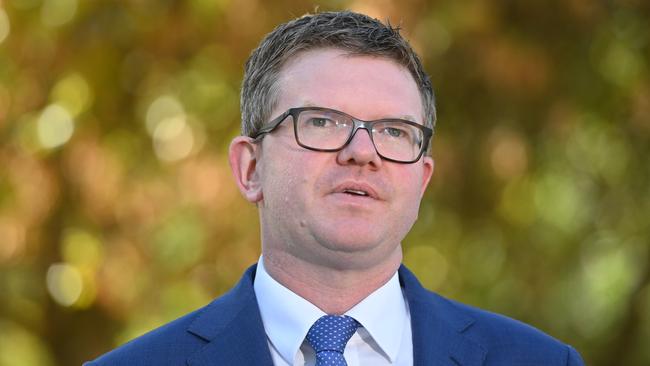
“In stark contrast, the Malinauskas Labor Government is investing an extra $4.4 billion into the health system, with both cancer and preventive health as key elements,” the statement read.
“Investment in preventive health measures can help significantly reduce the amount and severity of preventable chronic disease, such as cancer,” it continued, pointing to recent anti-smoking and vaping initiatives and a new Cancer Centre due for construction at the Modbury Hospital.
The statement also outlined plans to “improve cancer care and streamline health services across the state” via an impending “Cancer Plan”.
“A non-existent ‘SA Cancer Plan 2018-2022’ was scheduled for release in 2018 under the Liberals but they failed to deliver this, with the last cancer plan expiring in 2015.
“Our new five-year plan will focus on all aspects of cancer care including prevention, screening, diagnosis, early detection, treatment, survivorship and palliative care in metropolitan and regional areas. We look forward to releasing the plan soon.”
Mr Picton added that in good news for South Australians, cancer survival rates have increased.
More Coverage
Originally published as Experts call for cancer service support as young Australian patient numbers soar




